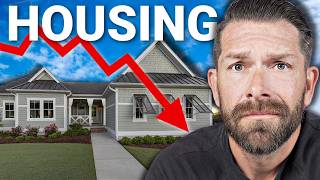Rising COSTS Will Have A HUGE Impact On Housing Affordability

Rising COSTS Will Have A HUGE Impact On Housing Affordability
If you're ready to take the next step in your home buying journey, visit www.theeducatedhomebuyer.com/start
Introduction: The Hidden Costs of Homeownership
Most people assume that once you buy a home, your monthly costs are fixed. The reality? Only part of that equation is predictable. Sure, your mortgage is typically locked in, but property taxes, homeowners insurance, and utilities? Those are moving targets—and they're rising faster than you think.
If you’re buying in Huntington Beach, Orange County, or any high-cost California market, these variable costs can make or break your budget. This post breaks down the top three rising costs impacting housing affordability and what you can do to get ahead of them.
1. Property Taxes: The Quiet Budget Killer
Why They're Rising
Home values surged during 2020–2022, but property tax assessments lagged behind. Now, those delayed assessments are hitting mailboxes in Orange County and across the U.S. In many cases, homeowners are seeing their taxes rise by thousands annually—a rude awakening for those not prepared.
How California Differs
Thanks to Prop 13, California homeowners get a relatively stable property tax structure. Your initial tax is based on your purchase price, and annual increases are capped at 2%. But there’s a catch: if you buy in a hot market at peak pricing, you lock in that high tax basis.
Meanwhile, in states like Texas or Florida, reassessments happen annually and can push your tax bill up dramatically if neighborhood values climb. Some regions exceed 2% in tax rates—double the national average of 1.1%.
What You Can Do
- Ask your agent for the actual tax bill when you’re buying. Don't rely on estimates.
- Look up exemptions: Homestead exemptions can reduce taxable value in some states.
- Challenge your assessment: If values drop post-purchase, many counties allow reassessments to reflect current market value.
- Factor taxes into your affordability range. If you’re stretching to qualify, even a modest increase could throw your budget off.
2. Homeowners Insurance: The Exploding Expense
Sticker Shock Across the Country
Nationally, the average homeowners insurance premium for a $300,000 home is now $2,397 annually. But that number doesn't tell the full story. In high-risk zones (like fire-prone parts of California or hurricane zones in Florida), insurance can top $10,000+ per year.
Huntington Beach Considerations
While much of HB isn’t in a flood zone, parts are—and that affects your premium. Even within a few miles, rates can vary widely depending on:
- Fire risk
- Flood zone classification
- Age of home
- Roof and plumbing condition
- Proximity to the coast
How to Lower Insurance Costs
- Shop around early. Don’t wait until the last week of escrow.
- Ask for bundling discounts (auto + home).
- Install mitigation features: Fire sprinklers, updated roofs, water detection systems.
- Opt for a higher deductible if you have financial reserves.
- Inquire about professional or veteran discounts.
- Check prior claims on the property. Past water or fire damage can affect insurability.
“I switched insurers and saved $500 a year…until that carrier exited California. Then I went back to my original agent who beat the market again. These are dynamic costs you need to track every year.” — Jeb Smith
3. Utilities: The Underestimated Monthly Drain
They’re Not Optional
Electricity, gas, water, sewer, and trash pickup—these aren’t optional. Yet most buyers completely ignore them in the budgeting process. Lenders don’t include them when qualifying you for a mortgage, which is a mistake.
If your budget is tight, a few hundred dollars a month in utilities can be the difference between peace of mind and feeling stretched thin.
Orange County Trends
Utility costs in coastal Orange County have steadily increased due to:
- Higher demand for power and water
- Aging infrastructure
- Regulatory changes
- Increased use of air conditioning and appliances
It’s not uncommon to see monthly bills of $300–450+, even for modest single-family homes.
How to Get Ahead of It
- Ask for seller utility records during escrow.
- Install smart thermostats and energy-efficient appliances.
- If buying a home with solar, review the lease or loan terms carefully.
- Don’t get talked into overpriced solar contracts. If it doesn’t pay for itself in 7–8 years, it’s likely not worth it.
"We saw a $90,000 solar system on a home recently that looked completely average. That seller didn’t shop around. Don’t make the same mistake."
The Cumulative Effect: What It Means for Buyers in 2025 and Beyond
In a world where prices are up, rates are high, and now non-mortgage costs are rising fast, affordability is under attack from every angle.
Let’s break down the monthly impact of these increases for a typical Orange County home:
| Cost Category | Old Monthly Avg | 2025 Monthly Avg |
|---|---|---|
| Property Taxes | $600 | $800 |
| Homeowners Insurance | $125 | $225 |
| Utilities | $300 | $450 |
| Total Increase | +$450/month |
That’s $5,400 more per year in costs many buyers aren’t budgeting for. And it’s why real estate professionals need to step up, educate buyers, and help them plan smarter.
Actionable Tips to Navigate Rising Costs
- Buy sooner, not later: Lock in your mortgage and property tax basis before prices climb further.
- Work with a hyper-local expert: Costs and risks vary block by block in SoCal.
- Audit your monthly budget: Factor in ALL housing costs before you commit.
- Shop insurance early and compare apples to apples.
- Request seller utility history during escrow.
- Challenge your tax assessment if the market declines.
The Bottom Line
Owning a home still offers long-term financial stability, but it's no longer enough to focus solely on your mortgage. You need a plan for the rising variable costs that impact affordability in Huntington Beach, Orange County, and beyond.
The good news? You don’t have to figure it all out alone.
👉 Start your homeownership journey the smart way at www.theeducatedhomebuyer.com/start


